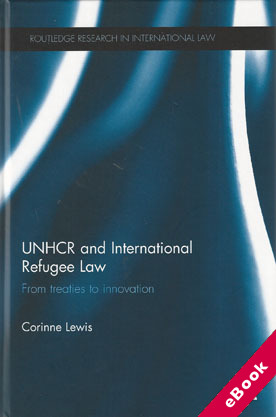
The device(s) you use to access the eBook content must be authorized with an Adobe ID before you download the product otherwise it will fail to register correctly.
For further information see https://www.wildy.com/ebook-formats
Once the order is confirmed an automated e-mail will be sent to you to allow you to download the eBook.
All eBooks are supplied firm sale and cannot be returned. If you believe there is a fault with your eBook then contact us on ebooks@wildy.com and we will help in resolving the issue. This does not affect your statutory rights.
This book considers the United Nations High Commissioner for Refugees' contribution to international refugee law since the establishment of UNHCR by the United Nations General Assembly in 1951. The book explores the historical and statutory foundations that create an indelible link between UNHCR and international refugee law. This book charts the significant evolution that has occurred in the organisation's role throughout the last sixty years, looking at both the formal means by which UNHCR's mandate may be modified, and the techniques UNHCR has used to facilitate the changes in its role, thereby revealing a significant evolution in the organisation's role since the onset of the crisis in refugee protection in the 1980's. UNHCR, itself, has demonstrated its organizational autonomy as the primary agent for the adaptation of its responsibilities and work related to international refugee law.
The author does suggest however that UNHCR needs to continue to extend and strengthen its role related to international refugee law if UNHCR is to ensure a stronger legal framework for the protection of refugees as well as a fuller respect for refugees' rights in practice. UNHCR and International Refugee Law should be of particular interest to refugee lawyers as well as academics and students of refugee law and international law, and anyone concerned with the important role that UNHCR plays in the protection of refugees today.